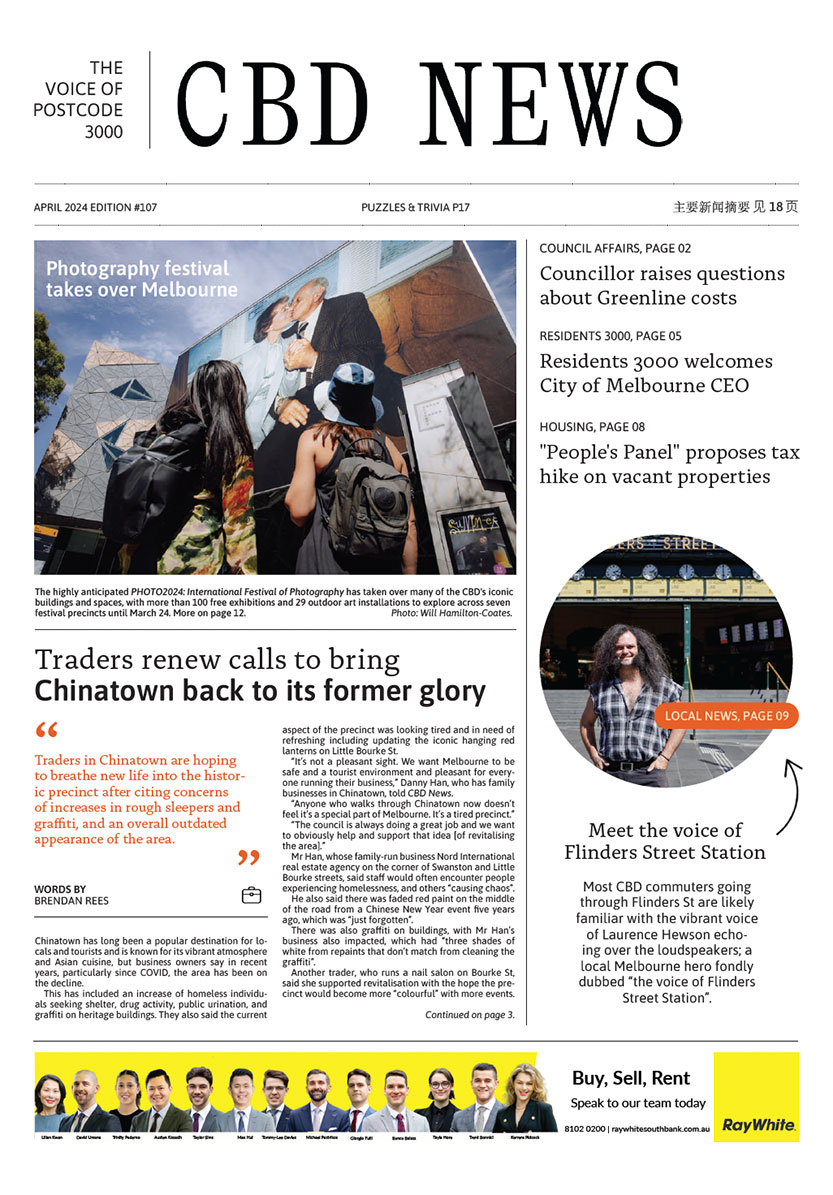CBD is home to everyone
By Sunny Liu
Boutique development firm RESCOM’s owners Bradley and Lisa Matthews lived in the city for two decades until recently.
The Matthews bought several storage warehouses next to the Queen Victoria Market in 1992 and later converted them into apartments and retail shops.
When they first moved to the CBD 20 years ago, no one understood their decision.
“People were asking us where we would get our milk and bread,” Mr Matthews said.
“We were in one of the first residential developments in the CBD and we were featured in the newspapers when we moved here,” he said.
Despite doubts from friends, the Matthews happily settled down in their rusty warehouse apartment and raised four children there.
Mr Matthews said the city had always had a close-knit community.
“We used to just send a message to the Queen Victoria Market vendors, who we all knew personally, to order some eggs and vegetables. That’s the beauty of being a city and a neighbourhood,” he said.
“We could walk out of our front door and we could go to the movies, restaurants, shops and trams.”
The Matthews loved their lifestyle in the heart of the city, but two decades later, they decided to move out of the CBD in 2016.
“The city has outgrown us. We got a planning permit to build a penthouse, with an outdoor swimming pool, on top of the building. But when you look around, you only see building with more than 60 storeys and there wouldn’t be any privacy,” Mrs Matthews said.
“Before, the CBD was ‘our home’, but now it’s home to 40,000 other people,” she said.
The couple welcomes both residential and commercial developments into Melbourne, but their warehouse-turned apartments next to one of the city’s biggest tourism hotspots have become unsuitable as their permanent home.
They also said the city’s infrastructure was not keeping up with the rapid development and influx of new residents.
“We love the hustle and bustle. But some of the infrastructure needs to be improved, especially the rubbish collection system,” Mr Matthews said.
“Before the streets were clean with the rubbish bins being picked up every day. But now they need to be picked up twice or three times a day because there are so many people. So they are constantly overflowing,” he said.
“So the infrastructure has not kept up with the development side.”
Mrs Matthews said the strong residential developments in the CBD have also driven commercial developments.
“Melbourne has never seen anything like this. The influx of overseas developers building skyscrapers is incredible. And this will continue to increase in the future,” she said.
“We totally embrace the changes. We think it’s good for Melbourne, but at the moment it’s just experiencing some growing pains,” she said, referring to the infrastructure improvements and building standards.
As a boutique developer, RESCOM targets local owner-occupiers with its high-quality apartment designs. In contrast, international developers build run-of-the-mill high-rises for investors.
Mr Matthews said developments were essential for Melbourne’s growth, despite the various building standards.
“Every level satisfies someone’s needs in the market. All developments are good, but they will be of different standards. In the long term, developments will get better,” he said.
“Melbourne will be leading other Victorian cities and regions to develop as well. It has already created a ripple effect in its inner circle and outer suburbs."

Eye’ll be watching: new street art deterring illegal dumping in Bullens Lane






 Download the Latest Edition
Download the Latest Edition